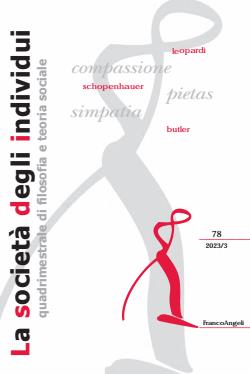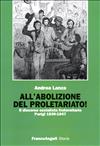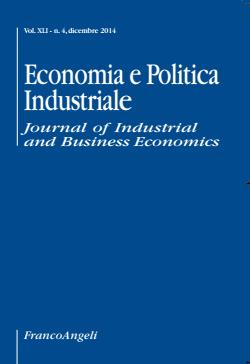
LIBRI DI ANDREA LANZA


From the perspective of the philosophical history of ideas, the article deals with the images of Rousseau in 19th-century French Social Science. It focuses in particular on the reception of Rousseau by Auguste Comte and Émile Durkheim compared to that of some of their contemporaries, such as Pierre Leroux and Alfred Espinas, as well as some of the leading figures in 20th-century Human Sciences, such as Claude Lévi-Strauss and Louis Dumont. By pointing out some hasty analogies (particularly between Rousseau and Comte, Rousseau and Descartes, Rousseau and Bastiat, between Rousseau’s general will and Durkheim’s collective consciousness), the Author highlights some of the key moments in the evolution of the close relationship between the scientific reflection on Society and Politics.

L’articolo ricostruisce le riflessioni sulla crisi dell’educazione avanzate dal filosofo politico Marcel Gauchet. All’interno di una più generale analisi delle trasformazioni della società democratica e dell’approfondirsi del processo d’individualizzazione, viene posta all’attenzione la diffusa incapacità di prendere in considerazione la formazione sociale dell’individuo. Solo a partire da tale constatazione è possibile comprendere le mutazioni storiche delle condizioni sociali in cui si educano i bambini. Il saggio si concentra inoltre su alcuni punti specifici dell’analisi della crisi dell’educazione.

Il discorso socialista fraternitario. Parigi 1839-1847
Il volume si concentra sul socialismo repubblicano del decennio che precede il Quarantotto francese. Materiali in apparenza eterogenei – gli scritti di personaggi di spicco (Leroux, Buchez, Blanc, Cabet), la stampa operaia ai suoi primi passi, un vasto numero di pamphlets – sono accostati al fine di far emergere una comune logica discorsiva, quella “socialista fraternitaria”, che mostra un’immagine della repubblica sociale a venire ben diversa da quelle storicamente datesi.
cod. 1573.387

Technology change and entrepreneurial capabilities: evidence from etched glass industry - The aim of the paper is to investigate how a given entrepreneurial firm can substitute the traditional innovation resources (R&D investment, patenting competences and specialized human capital) and what kind of different resources can be deployed in order to achieve a technology change. To point out the role of these particular resources we introduce the concept of dynamic entrepreneurial capabilities, and distinguish it from substantive entrepreneurial capabilities, two concepts which shall underpin our findings. We chose as research setting the Italian glass industry since it has always had a prominent role in defining new technological dominant design for the whole worldwide glass industry. This paper presents a longitudinal study carried out in the Italian etched glass industry. We observed a small Italian firm, Vetromed, for a 7-year period after its decision to implement technology change. Our findings suggest that Vetromed innovated its technology by developing and integrating three dynamic entrepreneurial capabilities, defined as higher order abilities, namely: distributed entrepreneurial insights; entrepreneurial heuristics; entrepreneurial flexibility.
Keywords: dynamic entrepreneurial capabilities, substantive capabilities, technology change
Parole chiave: capacità dinamiche imprenditoriali, capacità imprenditoriali parziali, cambiamento tecnologico
Jel Classification: O30 - O32 - O55

Defining the heterogeneity construct and linking it to performance Although heterogeneity has gained broad acknowledgement as a crucial phenomenon in the resource-based perspective, its relevance, whether as a source of inter-firm differences or of differences in firms’ performance, has often been taken for granted rather been empirically assessed. Further, heterogeneity has been accepted as a self-explanatory concept instead of being studied and clarified as a construct for empirical research. Therefore, the goal of this paper is to define the heterogeneity construct and to eventually link the latter to firms’ performances. A research on a 132 firms sample drawn from the Italian tool machine industry has been carried out to pursue this task. By means of a Structural Equation Model (LISREL) a 3-dimension construct has emerged; the heterogeneity construct dimensions are: contextuality, complexity and intertwinedness. The impact of heterogeneity on firms’ performance has also been confirmed by means of LISREL. .
Keywords: resource-heterogeneity, construct development, competitive advantage, Structural Equations Models
Parole chiave: eterogeneità delle risorse, sviluppo del costrutto, legame eterogeneitàvantaggio competitivo, modelli di equazioni strutturali .
Jel Classification: M100

The publication of Pour une histoire conceptuelle du politique. Leçon inaugurale au Collège de France faite le jeudi 28 mars 2002 (Paris, Seuil, 2003) offers us the occasion to reflect upon the historiographical approach and the theoretical reflection of Pierre Rosanvallon. In these pages we seek to shed light upon the methodological originality of conceptual political history, an originality which is derived above all from the understanding of politics as an historical process constituted by the continuous and contradictory interaction between society’s view of itself and social practices. The discussion of the close ties between a rigorous and problematic historiographical research and the questions posed by the present society, highlighting in particular his desire to contribute to the establishment of a new political culture for the reformist left, will serve to briefly outline the path Pierre Rosanvallon takes to arrive at his own definition of politics as well as to delineate the structure of an historiographical method adapted to the understanding of the political domain. To be presented in the final section are the applications of this historiographical approach in Rosanvallon’s works concerning the history of French democracy.